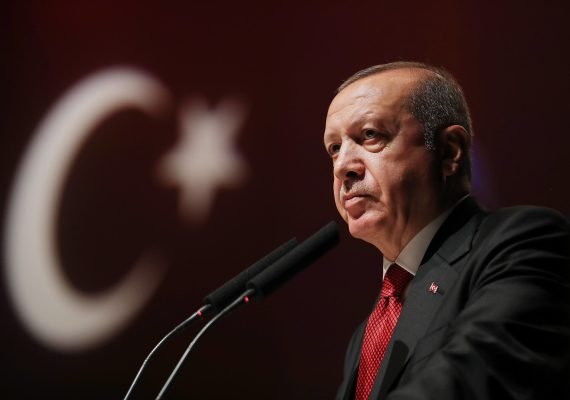Russian leader Vladimir Putin’s remark “liberalism has become obsolete” was headlined in the Financial Times issue dated 27 June, 2019.
The liberalism meant by Putin is the administrative system based on “liberal values” that are defined by the American left and called “constitutional liberal democracy” by the West.
From the perspective of these values, Putin is often accused of a series of things, such as being “authoritarian,” ruling his country with an iron fist, silencing the opposition and condoning the killing of dissident names.
Until recently, it was a common belief that a country could not have an advanced capitalist system that would render it a big player in the global arena without having a democracy based on liberal values.
However, Russia, a country rich in energy resources and not liberal by any means, has been taking on crucial roles in the world scene. In addition, China is ruled by the Communist Party and has lately granted almost lifelong leadership to its new leader Xi Jinping. Despite its gigantic police state and its order that can send millions to concentration camps at the same time and can close big regions at the scale of countries to the world, China has the most rapidly advancing capitalist economy of the past 40 years and its critical position in the world order is obvious.
Turkey and liberal politics
Is Putin right? Has liberalism really gone beyond its purpose and become obsolete? These questions are discussed everywhere in the world nowadays, including Turkey, of course. In Turkey’s case, President Recep Tayyip Erdogan has been accused of being “authoritarian” and suspending democracy especially as of 2013. And lately, the EU has accused Turkey of going backwards in terms of the rule of law and human rights.
Has liberalism really gone beyond its purpose and become obsolete? These questions are discussed everywhere in the world nowadays, including Turkey, of course.
The Western media often depicts President Erdogan as “the sultan of Turkey” with a typical orientalist gaze. This is a groundless insolence, because Erdogan’s power is based on popular support. It would be an insult to the Turkish nation if we compare the democracy in Turkey with countries like Russia, Azerbaijan or Kazakhstan. Turkey has always had a very vocal opposition. Turkey’s founding leader Kemal Ataturk had a strong opposition at the time, and Erdogan has a strong opposition today. Besides, the opposition in Turkey is on the rise in the current context.
Although the People’s Alliance, composed of the ruling Justice and Development Party (AK Party) and the Nationalist Movement Party (MHP), has preserved its power by enjoying more than 52 percent of the vote share in the latest local election, the opposition led by the Republican People’s Party (CHP) caught an advantage in terms of morale, since it won critical metropolitan municipalities such as Istanbul and Ankara. The repeat of the Istanbul mayoral election and the victory of the CHP’s Istanbul candidate Ekrem Imamoglu by 54 percent in the re-election amped up the morale of the opposition and caused opponents to see Imamoglu as a strong candidate to run for presidency against Erdogan in the 2023 presidential election.
On June 23, Turkey reached the end of an array of elections and referendums that began in March 2014. We have gone through two local elections, three general elections, two presidential elections and one referendum over the course of the past five years. The latest June 23 election should also be recognized as a separate election. So, the Turkish electorate went to the polls for nine times within this period. And now, the closest election is scheduled to be held on May 2023, at least on paper.
Depicting Erdogan as “the Sultan of Turkey” is typically orientalist. President Erdogan’s power is based on popular support and Turkey has always had a very vocal opposition.
Turkey has been in a great turbulence since the Gezi Park incidents in May 2013. The Gezi Park incidents, which caused a serious political and societal damage, were followed by the December 17 and 25 investigations, a purge attempt by the members of Gulenist Terror Group (FETO), the coup attempt on 15 July, 2016, orchestrated by FETO and the state of emergency declared after the coup attempt.
Throughout this period, the AK Party government turned to polls for the legitimization of the fight against FETO, asked for the people’s approval, and resorted to several extraordinary legal measures as of December 2013.
These measures that were taken as part of the anti-FETO fight form the basis of the criticisms directed to Turkey in terms of going backwards in democracy, human rights and the rule of law.
Recommended
The AK Party government and President Erdogan revoked a part of the extraordinary measures on the grounds that they are no longer needed, but Turkey could still not return to its pre-2013 “normal” state. In early 2013, Turkey was seeking to become more liberal and had started announcing judicial reform packages. After several liberating reforms made in 2013, the country entered a long period of stagnation, which is still ongoing.
The judicial reform initiative announced before the June 23 election is the most crucial indicator of the fact that the ruling power in Turkey still wishes to turn back to the pre-2013 route.
Will the liberal order, claimed to be dead by Putin, resuscitate in Turkey in the following months or years?
Will the liberal order, claimed to be dead by Putin, resuscitate in Turkey in the following months or years? Does President Erdogan and his administration wish that new liberties and reforms would determine the agenda of the country in the run up to the 2023 elections?
Turkey’s economic challenge
Before scrutinizing this, the economic recession Turkey has been confronting is also worth a brief mention. Turkey is currently facing the economic consequences of the political turbulence ongoing since 2013.
In fact, the economic recession began in 2013, when Turkey entered this political turbulence. The country firstly experienced a slow growth rate, which turned into recession over time. It would not be wrong to suggest that since 2013, Turkish people have been growing poorer whereas their income and wealth levels are on a gradual decline as the Turkish Lira’s value against the U.S. dollar is considered.
There is a correlation between the political turbulence experienced with this recession and the extraordinary legal measures taken.
The Turkish economy has a serious structural weakness. It always needs foreign capital for economic growth. There is no problem as long as this capital comes as direct investment, but not all of what is needed comes as direct investment. Turkey takes loans from abroad to a serious extent. This high level of financial indebtedness makes economic actors very sensitive to the changes in the value of the Turkish Lira while increasing the volatility of the currency. This is unavoidable when the earnings are Turkish Lira-denominated but the debts are in foreign currency.
Even worse, it does not seem very possible to overcome this economic weakness in the short term. Therefore, all the administrations in Turkey need the inflow of foreign sources in order to improve the welfare of the Turkish people. They naturally want to meet this need by drawing direct foreign investment capital instead of taking loans, but as I mentioned above, direct investment does not always satisfy all the needs.
The economic conditions and the no-election period that will last until May 2023 oblige the government to turn back to the pre-2013 Turkey.
The sharp devaluation in the Turkish Lira as of early 2018 alarmed the Western banks lending to Turkey. Turkey can no longer find additional loans. According to the latest figures, Turkish companies have paid debts corresponding to more than $25 billion over the past 12 months, and still cannot find new loans to take.
So, the economic conditions and the no-election period that will last until May 2023 oblige the government to turn back to the pre-2013 Turkey. Adopting policies that will prioritize economic development and promote peace and stability, the rule of law and other liberal values and practices seem unavoidable.
Furthermore, we have seen in the past 5-6 years that Turkish foreign policy directly affects the economy and the welfare of citizens. Turkey’s foreign policy steps always seek to guarantee its own national survival and the peace of its neighborhood in a tough region of the world. In the following period, the government should concentrate on the policy of having fewer foes and more friends.
I think it would be too assertive to refer to them as a “return to liberal policies,” because what Turkey seeks in the first place is “normalization.” Only after the normalization process is completed economic growth is enabled, it will be possible to speak about liberalization.





